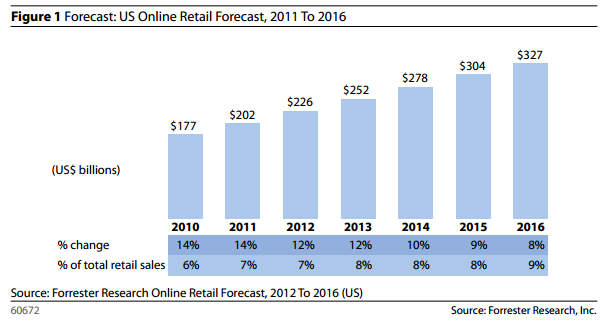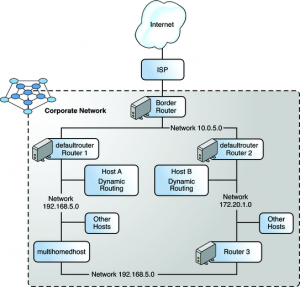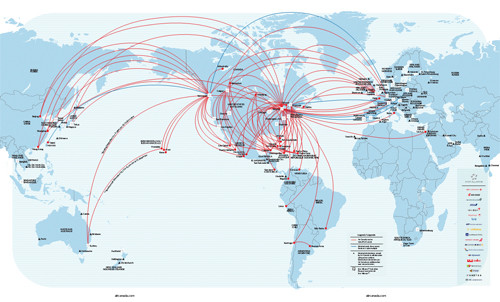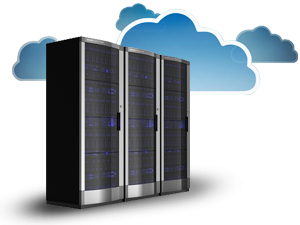 When deciding whether to choose hosting on-site versus using a colocation facility, there are several factors to consider. Some of these factors include:
When deciding whether to choose hosting on-site versus using a colocation facility, there are several factors to consider. Some of these factors include:
- Bandwidth
- Power
- Redundancy
- Security
- Scalability
BANDWIDTH
- Capacity – when dealing with bandwidth, you need to consider the capacity that will be available to you. Colocations are typically located near a major hub with multiple high capacity circuits within a very short distance. Connecting to one of these links ensures that you do not suffer from bottle neck issues and guarantees you a dedicated link that you will not have to share. Typically a place of business like a commercial or industrial park have shared circuits and capacity is affected when multiple businesses are utilizing the same link simultaneously.
- Redundancy – colocation facilities have multiple links coming in with built-in redundancy. This ensures a constant connection if a dedicated circuit goes down for any reason (planned or unplanned).
- Reliability – it is normal practice for carriers to install the newest hardware and have more concentrated attention where their biggest circuits are, usually where a colocation facility is located.
- Carrier Options – usually for a business, industrial park, or residence, the options for carrier links are very limited. As stated above, colocation facilities are usually located near a major internet hub which means more options for carriers. More options are better so you can avoid using a carrier that has known issues like circuit over subscription, reliability issues, or poor support.
POWER
- Back Up Generators – Colocations are known for providing backup power in case the building or area experiences a power outage. This is usually provided in the form of a generator. When choosing a colocation facility, it’s important to find out how long a generator can remain running. High quality colocations will have a generator that is powered by gas and the facility has a contract with a local fuel company to provide continuous gas for the duration of the outage.
- UPS Device for Further Back Up – In addition to a generator as a source of backup power, your gear, or the gear you are leasing, will be connected to a data center grade Uninterruptable Power Supply, or a UPS. These UPS devices are intelligent and long lasting with replaceable batteries. These are the backups for the backup. In case of a power outage, the generator will need to be turned on, whether automatically or manually, and will take some time to reach full operation. It’s important to have a high quality data center grade UPS to act as a buffer between the time the power is lost and the time the generator is ready.
- UPS Device for Clean Power Levels – Another factor to consider is the quality of the power. Servers and networking devices contain extremely sensitive components which require a constant and consistent supply of clean power. Power provided by the city is known for power spikes and fluctuating levels. This is not good for computer and network equipment. As mentioned above, a colocation will have a data center grade UPS which is not only good for providing power in case of an outage, but it also cleans, filters and regulates the power coming in. This is especially important when there is an outage and power is now provided by a generator, which have severe fluctuations in power levels.
REDUNDANCY
In case of hardware or software failure, or service interruption, it’s important to have redundancy in place to avoid service interruptions for your customers accessing your website or cloud service. Bandwidth and power redundancy have already been spoken of in the above paragraphs. High quality colocations will offer you the option to have your website or other cloud service backed up by a redundant server. Suppose the server that your site or service is hosted on experiences a catastrophic failure. Instead of waiting for hours, possibly days, for the hardware or software to be repaired, a redundant server that has live ongoing replication would kick in and continue providing your service to your customers while the main server or software is repaired.
SECURITY
The investment of your hardware, software, and intellectual property needs to be protected against loss. Home and business security systems are inadequate to provide the necessary security for hosting systems. Data centers and colocation facilities are manned by guards 24/7 with constant video monitoring. These facilities also have screening processes for who is authorized to enter and leave. They also have secure entryways requiring some form of authentication via either a smart card, pin pad, biometric scanners, or a combination of such. You can sleep comfortably knowing your investments are protected and guarded every minute of every day.
SCALABILITY
One of the greatest upsides to hosting in a colocation facility is the scalability. Supposed you are hosting a service on a system that is contained in a single rack and it has the capacity to support 10 more clients. Suppose a very large client decides they want to use your service, but the capacity required to support them is larger than the capacity you have available. Now you need to purchase more hardware, find more space to put this hardware, but this customer wants to come onboard now. If you are hosting in a colocation facility, the room to expand is already available, and if you don’t have time to purchase new hardware (servers, switches, storage, etc.) a colocation is very likely to already have these devices available for lease. You can expand within a matter of hours.
GLOBAL IT COLOCATION SERVICES
By hosting in a colocation facility, you have the needed quantity and quality of resources required to support a growing customer base. Global IT has colocation facilities located in two of the largest internet hubs in the country, Los Angeles and New Jersey. They come coupled with the experience, expertise, and availability to support any conceivable hosting requirement you may have. Please contact Global IT today to discuss your colocation hosting needs (877) 822-5565.
https://info.globalit.com/wp-content/uploads/2014/08/web_hosting_banner.png
Cloud
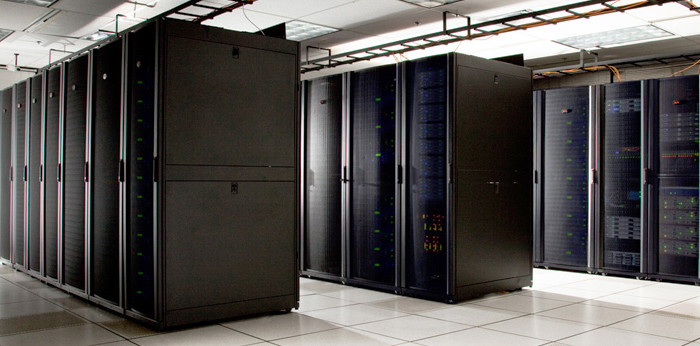

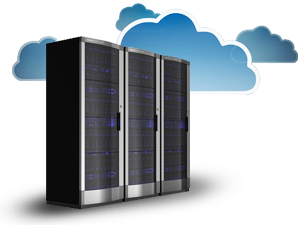
 When deciding whether to choose hosting on-site versus using a colocation facility, there are several factors to consider. Some of these factors include:
When deciding whether to choose hosting on-site versus using a colocation facility, there are several factors to consider. Some of these factors include: Many businesses outside of the US are looking to expand their markets and offer their products to US consumers. This is especially true if these businesses are primarily selling their products through an ecommerce platform. There are a few challenges involved in bridging that gap to online US sales. Most of US consumers are weary of making purchases from international ecommerce sites because they are concerned with lack of consumer protection, unsafe transmit credit information and unexpected taxes or fees on purchases. Colocating in the US is the first step to establishing a local online presence and increase buyer confidence.
Many businesses outside of the US are looking to expand their markets and offer their products to US consumers. This is especially true if these businesses are primarily selling their products through an ecommerce platform. There are a few challenges involved in bridging that gap to online US sales. Most of US consumers are weary of making purchases from international ecommerce sites because they are concerned with lack of consumer protection, unsafe transmit credit information and unexpected taxes or fees on purchases. Colocating in the US is the first step to establishing a local online presence and increase buyer confidence.